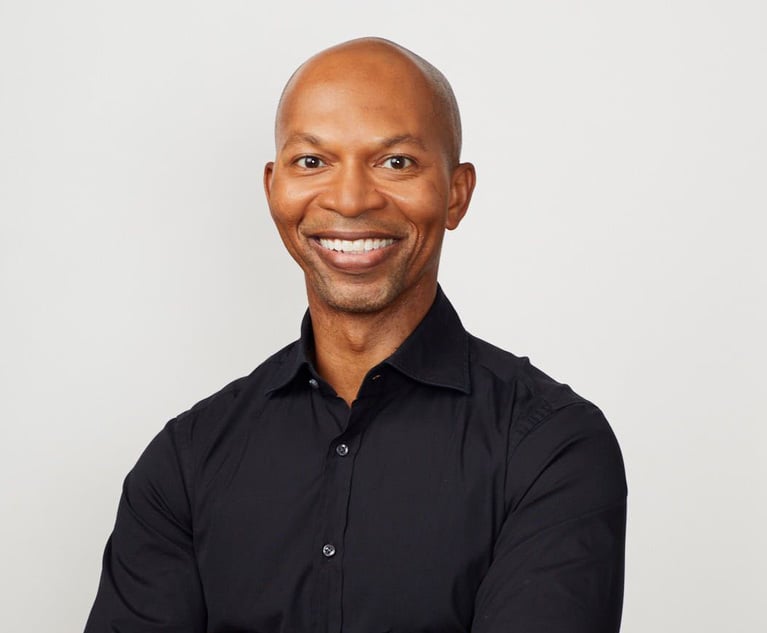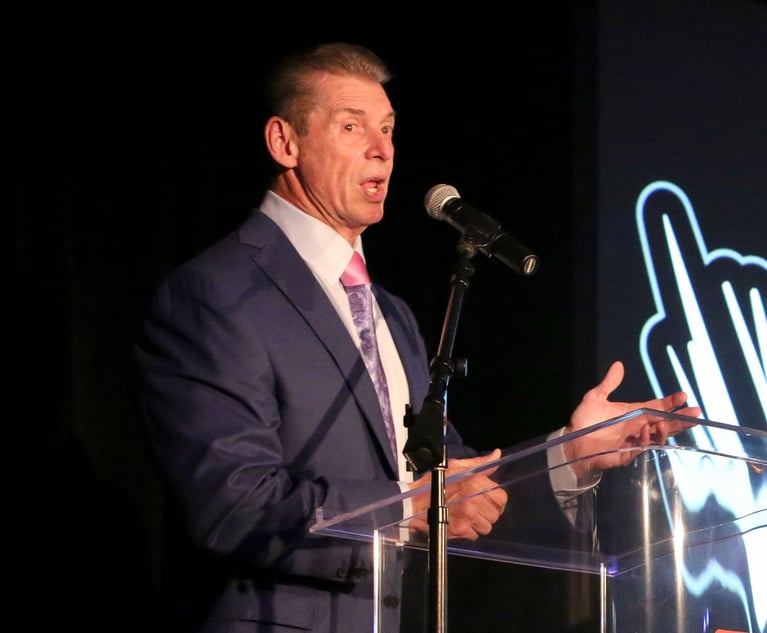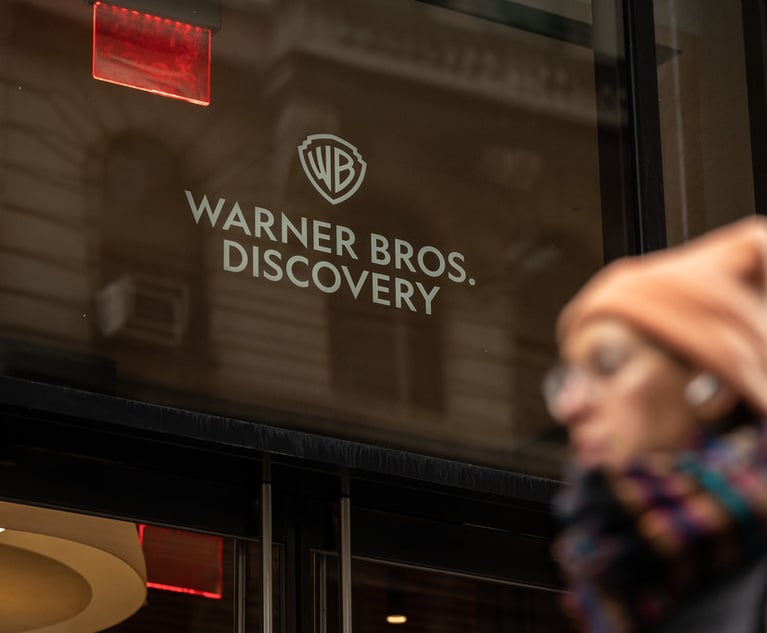 Harvey Weinstein, the former co-chairman of the Weinstein Co., center, arrives with his attorney Donna Rotunno, left, at state Supreme Court in Manhattan on Feb. 24. Photo: Peter Foley/Bloomberg
Harvey Weinstein, the former co-chairman of the Weinstein Co., center, arrives with his attorney Donna Rotunno, left, at state Supreme Court in Manhattan on Feb. 24. Photo: Peter Foley/BloombergHarvey Weinstein Found Guilty of 3rd-Degree Rape and Criminal Sexual Act
Six women testified against Weinstein at his trial, describing three decades of interactions with Weinstein. Annabella Sciorra, Miriam Haley and Jessica Mann all testified about incidents that led to his criminal charges, while the other three women were allowed to testify as "prior bad acts" witnesses.
February 24, 2020 at 11:44 AM
5 minute read
A Manhattan jury Monday morning convicted former Hollywood producer Harvey Weinstein on criminal sexual act and third-degree rape charges, but split its verdict by acquitting him on the most serious charges in the case, predatory sexual assault and first-degree rape.
District Attorney Cyrus Vance Jr. and lawyers representing Weinstein's accusers immediately hailed the verdict, while Weinstein's lawyers said they have a strong case for appeal.
"It is a new era. The #MeToo movement has educated us all," said Deborah Katz of Katz, Marshall & Banks, who represents accuser Dawn Dunning.
Weinstein was jailed Monday in anticipation of his sentencing, set for March 11. He also faces criminal charges, including forcible rape, in Los Angeles.
His lawyer, Arthur Aidala of Aidala, Bertuna & Kamins, said the defense team will ask for Weinstein's release on bail pending appeal this week. Appellate lawyers who reviewed the case file over the weekend raised a number of issues for appeal, Aidala said, including the complicated verdict sheet and the testimony of "prior bad acts," or Molineux, witnesses.
During the monthlong trial, three Molineux witnesses were allowed to testify about incidents that did not lead to an indictment for Weinstein in New York, testimony that legal experts believe could have shifted the verdict in the case.
Weinstein, 67, has maintained his innocence amid all the allegations against him, which reportedly involve more than 100 women at this point. Many told their stories publicly after The New York Times and the New Yorker magazine published a pair of major investigations into his behavior toward women in October 2017.
When the verdict was read in court Monday, Weinstein was "stoic," Aidala said.
"All he kept saying was 'I'm innocent. But I'm innocent,'" Aidala said.
The jury found Weinstein guilty of criminal sexual act in the first degree, which carries a sentence of five to 25 years in prison, against Miriam Haley. Haley testified that Weinstein performed forcible oral sex on her in his New York apartment in 2006. He was also found guilty of third-degree rape against Jessica Mann, which could lead to a short prison sentence or probation.
Vance said he is not disappointed in the verdict, even though Weinstein was acquitted of the top charge, predatory sexual assault, which carried a maximum sentence of life in prison. He said the case "turned the page" of public understanding on how sexual assault works.
"Rape is rape … whether it's committed by an indigent person or a man of immense power, prestige, and privilege," Vance said. "Rape is rape whether the survivor reports it within the next hour, within a year, or never at all. It's rape, despite the complicated dynamics of power and consent after an assault. It's rape even if there is no physical evidence. Even if it happened a long time ago."
Weinstein's defense attorneys, notably the Chicago attorney Donna Rotunno, conducted tough cross-examination during the trial, asking the women why they didn't run away sooner or fight back more violently. Asked about the anxiety women often face in coming forward, Vance said he hopes the verdict shows that that kind of cross-examination is not effective.
"I hope that with this verdict it will become more obvious that those kinds of attacks on survivors and victims who are on the stand, making it seem like it's all their fault, will be realized as legal attacks that just simply are no longer going to work in this day and age," he said.
Six women testified against Weinstein at his trial, describing three decades of interactions with Weinstein. Prosecutors described Weinstein as a calculating predator who targeted vulnerable women and took advantage of his status in the entertainment industry to keep them quiet.
Weinstein's defense team also spoke often about Weinstein's professional power, but argued that the women agreed to sexual relationships with Weinstein to build their own careers and enjoy his power and wealth.
"Every single one of these women reaches out, asks for things, and he does everything he can do to make it happen," Rotunno said during her closing argument. "This is not a monster."
In Los Angeles, Weinstein is charged with forcible rape, forcible oral copulation, sexual penetration by use of force and sexual battery by restraint, prosecutors in California announced on the day his trial began in New York.
Weinstein is likely to stay in a jail infirmary because of ongoing issues with his health, his lawyers said. In addition to back problems that led him to use a walker throughout the trial, Weinstein is under the care of five doctors and is receiving injections "in his eyes" to prevent blindness, Rotunno said just after the verdict was read.
READ MORE:
This content has been archived. It is available through our partners, LexisNexis® and Bloomberg Law.
To view this content, please continue to their sites.
Not a Lexis Subscriber?
Subscribe Now
Not a Bloomberg Law Subscriber?
Subscribe Now
NOT FOR REPRINT
© 2024 ALM Global, LLC, All Rights Reserved. Request academic re-use from www.copyright.com. All other uses, submit a request to [email protected]. For more information visit Asset & Logo Licensing.
You Might Like
View All
SoundCloud GC Takes Legal Reins of Condé Nast at Tumultuous Time

With SDNY Stay Lifted, Sex Trafficking Civil Suit Against Vince McMahon, WWE Gets Green Light
3 minute read
Big Tech and Internet Companies Slammed With Consumer Class Actions in December

Trending Stories
Who Got The Work
Michael G. Bongiorno, Andrew Scott Dulberg and Elizabeth E. Driscoll from Wilmer Cutler Pickering Hale and Dorr have stepped in to represent Symbotic Inc., an A.I.-enabled technology platform that focuses on increasing supply chain efficiency, and other defendants in a pending shareholder derivative lawsuit. The case, filed Oct. 2 in Massachusetts District Court by the Brown Law Firm on behalf of Stephen Austen, accuses certain officers and directors of misleading investors in regard to Symbotic's potential for margin growth by failing to disclose that the company was not equipped to timely deploy its systems or manage expenses through project delays. The case, assigned to U.S. District Judge Nathaniel M. Gorton, is 1:24-cv-12522, Austen v. Cohen et al.
Who Got The Work
Edmund Polubinski and Marie Killmond of Davis Polk & Wardwell have entered appearances for data platform software development company MongoDB and other defendants in a pending shareholder derivative lawsuit. The action, filed Oct. 7 in New York Southern District Court by the Brown Law Firm, accuses the company's directors and/or officers of falsely expressing confidence in the company’s restructuring of its sales incentive plan and downplaying the severity of decreases in its upfront commitments. The case is 1:24-cv-07594, Roy v. Ittycheria et al.
Who Got The Work
Amy O. Bruchs and Kurt F. Ellison of Michael Best & Friedrich have entered appearances for Epic Systems Corp. in a pending employment discrimination lawsuit. The suit was filed Sept. 7 in Wisconsin Western District Court by Levine Eisberner LLC and Siri & Glimstad on behalf of a project manager who claims that he was wrongfully terminated after applying for a religious exemption to the defendant's COVID-19 vaccine mandate. The case, assigned to U.S. Magistrate Judge Anita Marie Boor, is 3:24-cv-00630, Secker, Nathan v. Epic Systems Corporation.
Who Got The Work
David X. Sullivan, Thomas J. Finn and Gregory A. Hall from McCarter & English have entered appearances for Sunrun Installation Services in a pending civil rights lawsuit. The complaint was filed Sept. 4 in Connecticut District Court by attorney Robert M. Berke on behalf of former employee George Edward Steins, who was arrested and charged with employing an unregistered home improvement salesperson. The complaint alleges that had Sunrun informed the Connecticut Department of Consumer Protection that the plaintiff's employment had ended in 2017 and that he no longer held Sunrun's home improvement contractor license, he would not have been hit with charges, which were dismissed in May 2024. The case, assigned to U.S. District Judge Jeffrey A. Meyer, is 3:24-cv-01423, Steins v. Sunrun, Inc. et al.
Who Got The Work
Greenberg Traurig shareholder Joshua L. Raskin has entered an appearance for boohoo.com UK Ltd. in a pending patent infringement lawsuit. The suit, filed Sept. 3 in Texas Eastern District Court by Rozier Hardt McDonough on behalf of Alto Dynamics, asserts five patents related to an online shopping platform. The case, assigned to U.S. District Judge Rodney Gilstrap, is 2:24-cv-00719, Alto Dynamics, LLC v. boohoo.com UK Limited.
Featured Firms
Law Offices of Gary Martin Hays & Associates, P.C.
(470) 294-1674
Law Offices of Mark E. Salomone
(857) 444-6468
Smith & Hassler
(713) 739-1250






